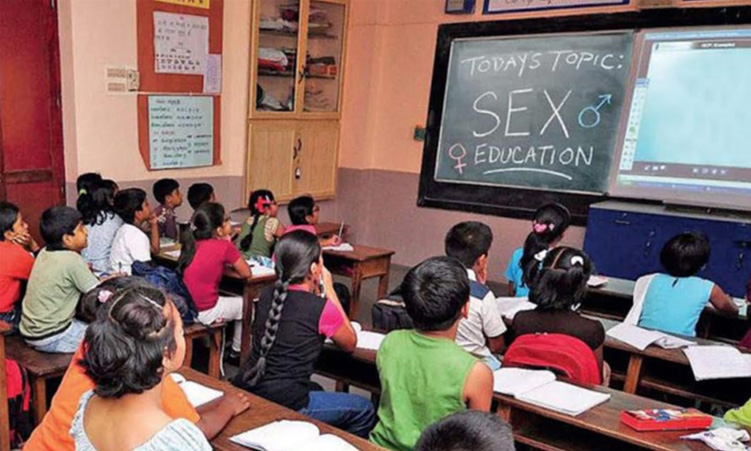Objections raised by anti-gay demonstrators in Windhoek this week about teaching sex education at schools is a strong reminder that more needs to be done to encourage open and respectful dialogue about sexuality.
An anti-lesbian, gay, bisexual, transgender, queer/questioning, intersex and other (LGBTQI+) committee, led by unionist Pendapala Nakathingo, petitioned the Ministry of Education, Arts and Culture this week, urging it to stop teaching children about sexuality without the consent of their parents.
The hate-spewing Nakathingo alleged, without backing up his claims, that organisations such as the #BeFree Movement, led by former first lady Monica Geingos, are pushing an LGBTQI+ agenda.
“I have the information in terms of the school curriculum that #BeFree produced a workshop in the Omaheke region, at Gobabis, teaching sexual education,” he said.
What’s wrong with young people learning about how the human body works? Girls and boys need to be taught about all aspects of their well-being, including sexual and reproductive health. Knowledge empowers people, not least children.
Worryingly, a growing number of senior government officials and members of the ruling party are echoing Nakathingo’s harmful views on sex education.
Denying children comprehensive sexuality education (CSE), based on outdated beliefs, is a serious mistake with potentially harmful consequences. Children need to know what’s right and what’s wrong, and how to find help when they need it.
There seems to be a misconception about what CSE entails. Critics like Nakathingo allege that CSE bombards children with unfiltered and inappropriate information about sex and sexuality.
Far from it. In fact, school curricula have been carefully designed to meet children at their level of maturity and understanding.
For example, children in primary school will explore concepts like consent, or how to identify a safe adult. Subjects such as safe sex and family planning are reserved for older pupils.
Apart from ensuring young people have the right information to make decisions, teenage pregnancies have reached a crisis level in Namibia.
To put this in perspective, the health minister has reported that up to 15 000 school-age children become pregnant each year.
Additionally, The Namibian reported a staggering 160 800 teenage pregnancies between 2010 and 2019.
We agree with Sister Namibia on this issue.
The organisation posted on its Facebook page this week: “For clarity: There is no public school curriculum that ‘promotes’ any sexual orientation!
“The goal of CSE is to provide young Namibians with accurate information about their own bodies and their rights, and the language/tools to express themselves about their experiences.
“CSE helps protect our children by empowering them to move through our society, where child abuse and gender-based violence are so common. The more inclusive we are, the more prepared they are. Simple as that.”
It is vitally important to break the culture of silence and secrecy around sex, which allows people to prey on youngsters.
Whether it be a member of the family, or family friends, or even people who abuse positions of responsibility or power to take advantage of often naive youngsters, both male and female.
The best way to protect and empower our young people is to equip them with knowledge and the ability to make informed choices.
Stay informed with The Namibian – your source for credible journalism. Get in-depth reporting and opinions for
only N$85 a month. Invest in journalism, invest in democracy –
Subscribe Now!







